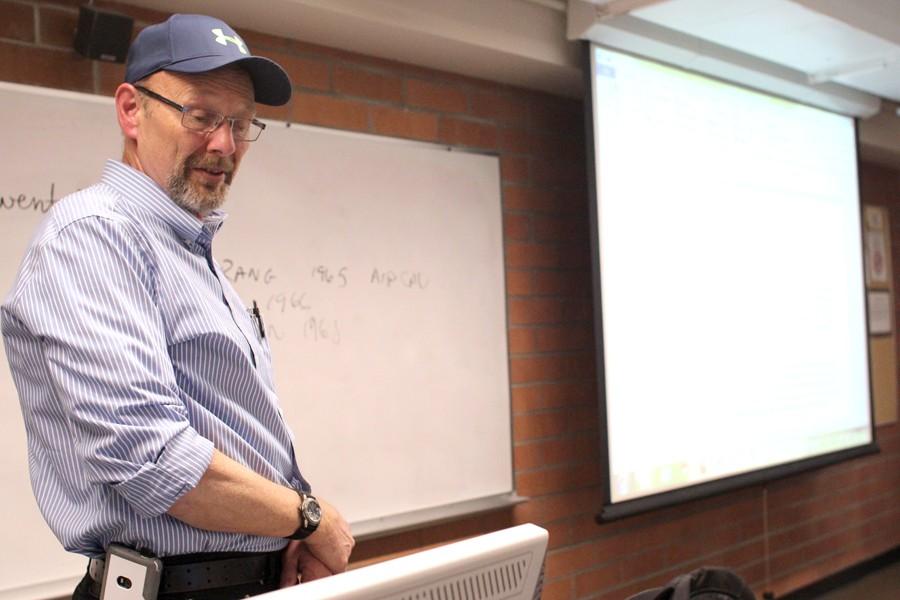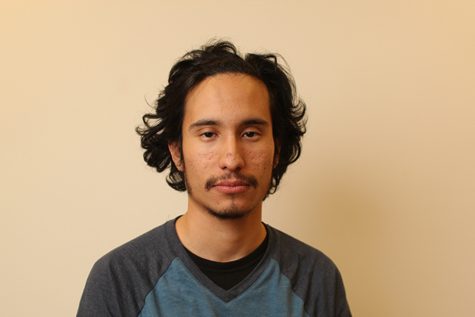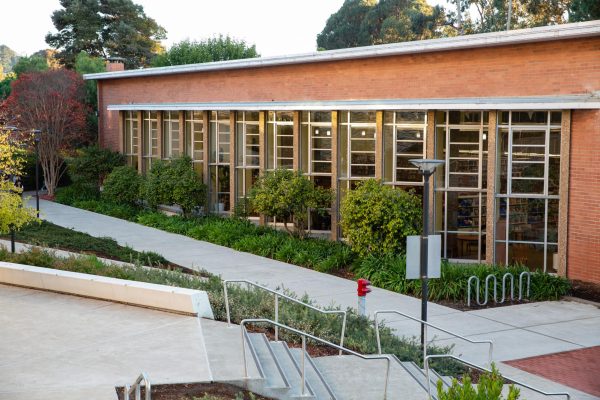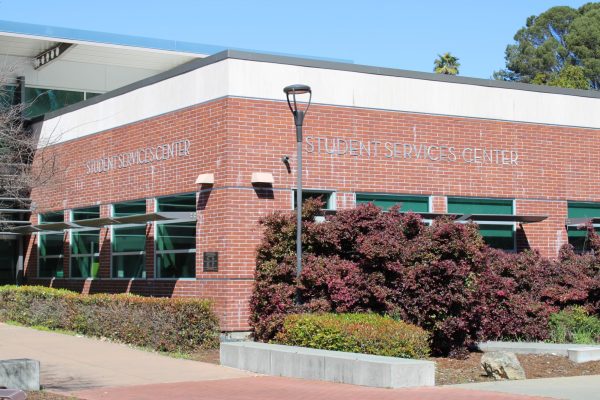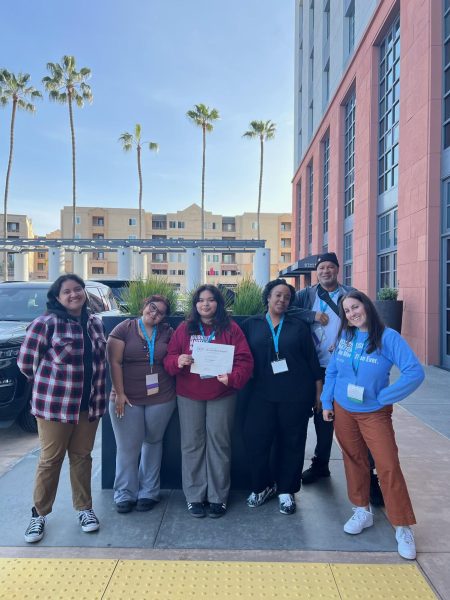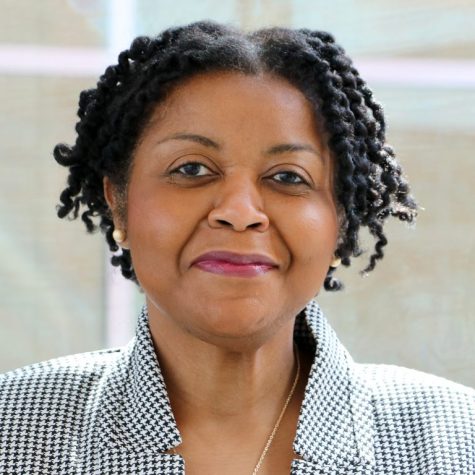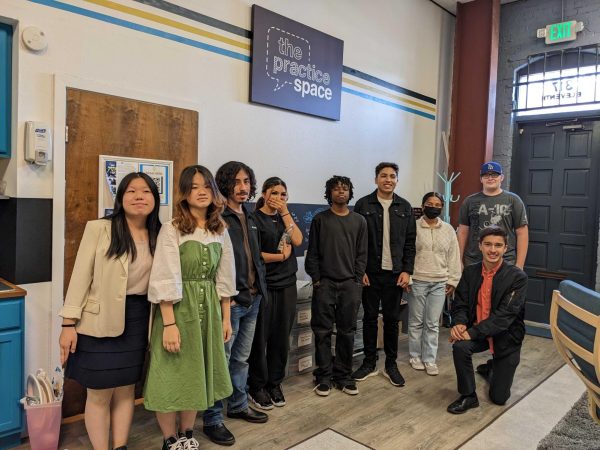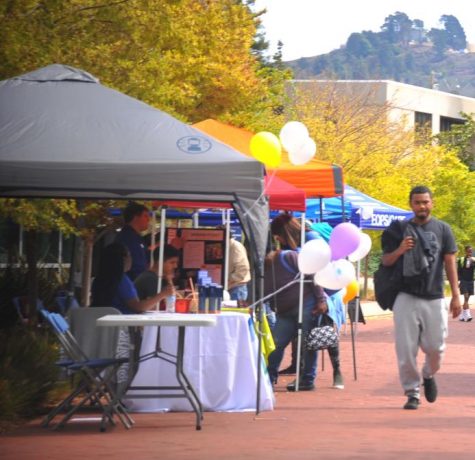War tales expose tragedy of combat
Christian Urrutia / The Advocate
Adjunct English professor Michael Hassett introduces his agenda for the event during “Vietnam: Childhood’s End” in L-107 on May 5.
May 17, 2015
Concluding the informal Contra Costa College faculty facilitated book discussions of “The Things They Carried” by Tim O’Brien as part of the Big Read events, “Vietnam: Childhood’s End” re-told some of the lost innocence many young soldiers went through during the Vietnam War.
Adjunct English professor Michael Hassett led the event, as he is also a veteran of the Vietnam War, on May 5 in Library and Learning Resource Center, L-107.
“My father said that Vietnam changed me. It did and that has meant everything,” Hassett said in his opening introduction.
“So when I came home I felt I like was 40 years old at least,” Hassett said, then quoted an article by Jeph Loeb called “Childhood’s End” where Loeb mentions the premature aging of Vietnam veterans upon their return to the everyday world.
“The world is what we called this place. OK, because Vietnam was such another worldly place,” Hassett said.
Hassett proceeded to recall anecdotal experiences he had during his tour and listed statistical information about the war.
He mentioned O’Brien several times as he quoted what O’Brien said in his book about storytelling and the stories we tell, even when they take place in war-like conditions — or in this case, an actual war.
Hassett said there was no explaining turn of events, it just was, trying to emulate what O’Brien said about the dead.
“To speak of the dead and to let them live if only in re-telling their stories is what O’Brien alludes to at the end of the book,” Hassett said.
Early childhood education major Gabriela Duran said that Hassett is her English professor and that she attended the workshop because the final is on the book.
“Since he is a vet, he can describe the experience like no other. I think with his knowledge, he is a perfect person to discuss the book and the presentation in which he gave helped you visualize (the horrors) of war,” Duran said.
“The time of youth maturation and playing with different roles was lost forever. The Vietnam veterans, as a whole, lost their youth.
“They went from children to men during their year or 13 months in Vietnam,” Hassett said.
He said that he never got his youth back because of too many memories of Vietnam and that he went straight to college furthering his career.
Karla Davila, nursing major, said, “The emotion (as he is re-telling the story), you can hear it in his voice. The sadness makes me want to cry but you realize what a big impact the war had on these vets, even if it was so many years ago.”
Davila said that the treatment of post-Vietnam vets and other veterans of the more recent Middle Eastern conflicts made her understand what people, like her nephew, are going through emotionally, pertaining to post traumatic stress disorder.
Hassett said, “Vietnam was one of the most momentous times of my life. Only with marriage, holding my children after they were born, and teaching did I emerge from the shadow Vietnam had cast — and became a real human being.”


